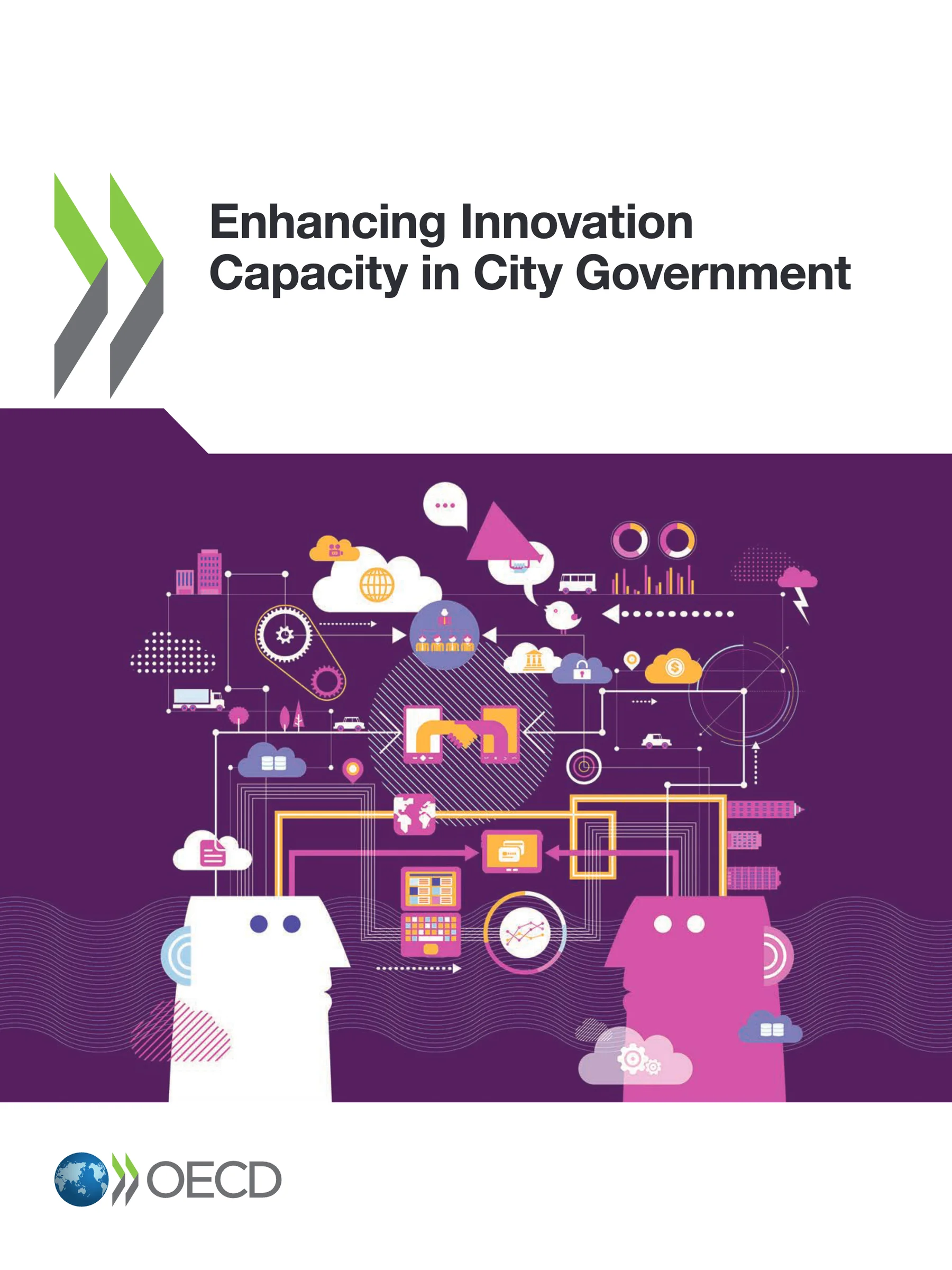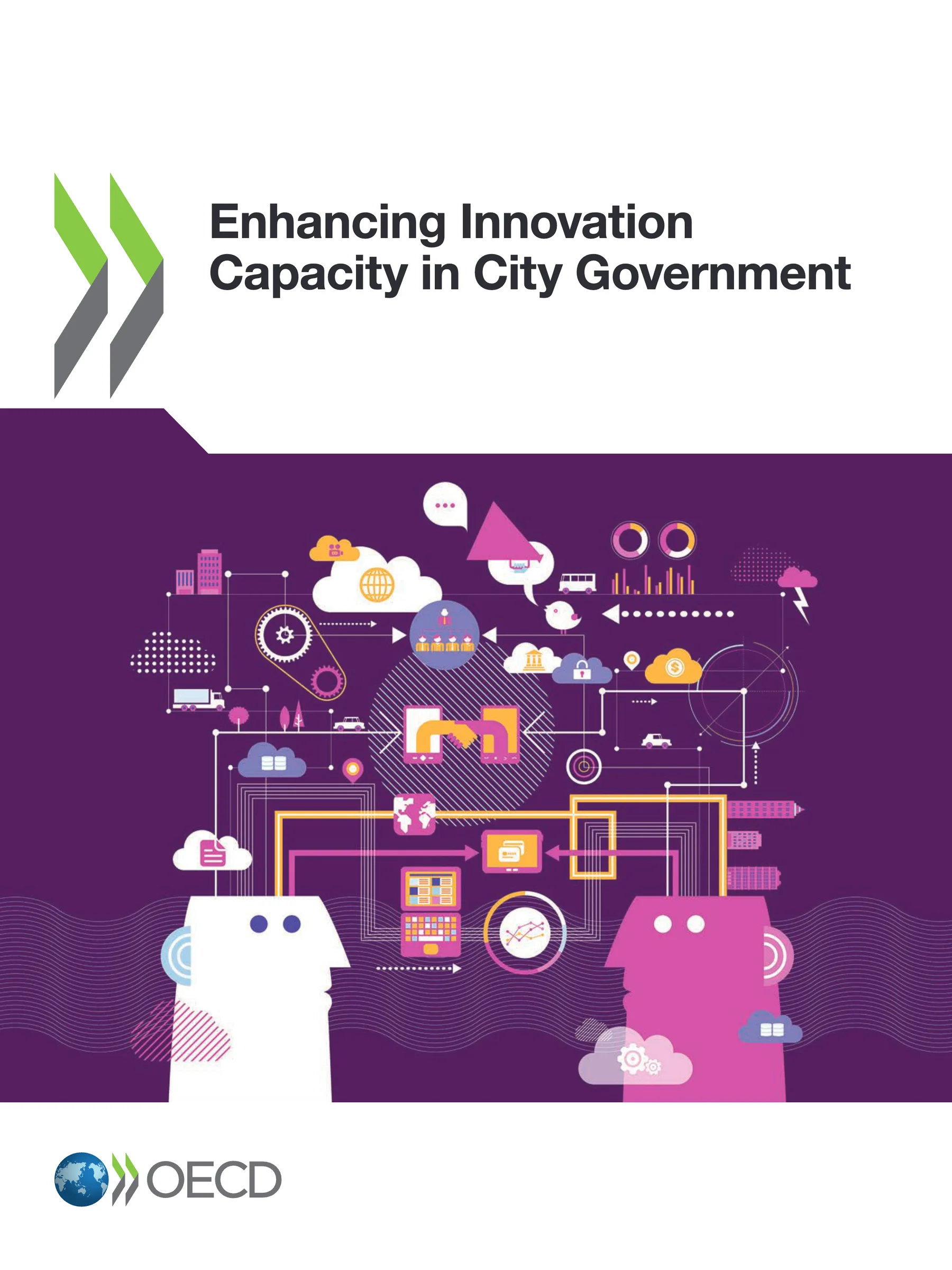AI-Generated Summary
Context and Overview
The document "Enhancing Innovation Capacity in City Government" is published by the OECD (Organisation for Economic Co-operation and Development), a reputable international organization that promotes policies to improve the economic and social well-being of people worldwide. The report is authored by a team from the OECD, focusing on how cities can enhance their innovation capacity in public administrations to better serve their residents and address contemporary challenges.
Innovation in City Governments
Cities globally are recognized for their significant innovation potential in addressing local public administration challenges. Municipalities aim to improve residents' well-being by focusing on issues such as poverty reduction, public health, education access, and local economic productivity. The report highlights innovative practices, suggesting that cities create roles such as chief innovation officers, establish innovation teams, and develop specific strategies to enhance their innovation capabilities.
Survey Insights
The report is based on a survey conducted across 89 cities of varying sizes, from those with populations under 50,000 to over 9 million. The survey captures five dimensions of innovation capacity: strategy, staffing, data use, funding, and evaluation of outcomes. Importantly, 55% of the surveyed cities reported having formal innovation goals, although only 49% have a defined innovation strategy, indicating a gap in structured approaches to fostering innovation.
Key Findings
Establishing a culture of innovation is crucial for municipal staff, encouraging experimentation and learning from failures. The report concludes that supportive leadership is essential for prioritizing innovation efforts across city administrations. Moreover, cities with formal innovation strategies reported a higher engagement in innovation-related activities compared to those without such strategies.
Data Management and Partnerships
Cities that effectively manage and utilize data significantly enhance their innovation capacity. About 85% of cities recognize the importance of data in decision-making processes, yet data availability varies across sectors. For example, while data on transport and policing is widely available, areas like social welfare and culture are less documented. Furthermore, 75% of cities with substantial data roles have established partnerships with academia and think tanks to improve their data management and analysis capabilities.
Funding for Innovation
Funding is critical for implementing innovative projects. The report indicates that 80% of responding cities have specific funding allocated for innovation, primarily sourced from municipal budgets. However, many cities still face budget constraints which limit their ability to invest in innovation fully. Cities that invest in innovation often see a better return on taxpayer investments, as evaluated projects demonstrate more effective outcomes.
Community Engagement
Engaging residents is vital for successful innovation in city governance. The report emphasizes the importance of viewing citizens as active partners in the innovation process. Approximately 80% of surveyed cities have developed partnerships with residents to co-create public services, thereby enhancing citizen satisfaction and reducing operational costs.
Conclusion
The OECD report provides valuable insights into how city governments can enhance their innovation capabilities to address pressing urban challenges effectively. By focusing on structured strategies, effective data management, and community engagement, cities can better meet the needs of their residents, fostering sustainable urban development.

